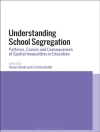‘A must-read for all mathematics teacher coaches. Woleck brings us into her coaching life by sharing these cases from her work. Through the engaging details of these personal stories, she skillfully leads us into considering various coaching models, essential coaching skills, and effective coaching practices. Focus questions at the end of each chapter add an incentive for readers to deepen their own practices and use this book as the basis for study groups.’
—Euthecia Hancewicz, Mathematics Teacher Support Specialist
Mathematics Educator Support Services, Westhampton, MA
‘Woleck provides an instructive and insightful analysis of what makes coaching a powerful and capacity-building resource for schools. This highly engaging and informative account details how effective coaching skills develop and become refined through research-based study, daily practice, and ongoing reflection.’
—Mary Monroe Kolek, Deputy Superintendent
New Canaan Public Schools, CT
Follow a mathematics coach through real cases from actual school situations!
Kristine Reed Woleck reflects on specific cases or ‘moments’ from her years as a mathematics coach, unpacking and examining for readers the critical elements of mathematics teaching, learning, and coaching. This accessible, practical resource discusses what effective coaching looks like and how beginning and veteran mathematics coaches in Grades K–5 can bring about meaningful improvements in mathematics instruction. The real-life cases illustrate how to
- Incorporate key elements of coaching into practice
- Build trusting relationships with teachers
- Make effective decisions throughout the coaching cycle
- Reference data and the curriculum as coaching tools
- Use reflection to link coaching concepts to actual practice
Содержание
Preface
Acknowledgments
About the Author
Part I. The Coach′s Work
1. What Is Coaching?
Case: Coaching in Action, Ann, Grade 5
Taking a Closer Look
Research-Based Models of Coaching
Keys to Developing a Coaching Model
Questions for Reflecting and Linking to Practice
2. Starting the School Year
Making Introductions
Establishing Trust
Deciding Who to Coach
Deciding Who Not to Coach . . . Then What?
Getting Organized
Communicating With Administrators
Keys to Getting Started
Questions for Reflecting and Linking to Practice
3. The Coaching Cycle
Case: Decision Making in the Coaching Cycle, Fiona, Kindergarten
Taking a Closer Look
Defining the Focus
Coach′s Role, Teacher′s Role
Fiona′s Case, Continued
Taking a Closer Look
The Need for Variations in the Coaching Cycle
Keys to the Coaching Cycle
Questions for Reflecting and Linking to Practice
Part II. Tools for Coaching
4. Using Curriculum
Defining the Meaning of Curriculum
Case: Talking About Curriculum, Sue, Grade 2
Taking a Closer Look
Using the Curriculum as a Coaching Tool
Keys to Coaching With Curriculum
Questions for Reflecting and Linking to Practice
5. The Role of Questioning
Case: Different Questions for Different Purposes, Nancy, Grade 1
Taking a Closer Look
Case: Planning the Questions, Rick, Grade 4
Taking a Closer Look
Case: When Open-Ended Questions Aren′t Enough, Carolyn, Grade 1
Taking a Closer Look
Keys to Questioning
Questions for Reflecting and Linking to Practice
6. Being Explicit
Case: Making Explicit Moves, Keith, Grade 4
Taking a Closer Look
Keys to Being Explicit
Questions for Reflecting and Linking to Practice
7. Using Data
Case: Creating Urgency Through Data, Peggy, Grade 5
Taking a Closer Look
Tools to Facilitate the Use of Data
Developing Student-Focused Action Plans
Keys to Using Data
Final Thoughts About Data
Questions for Reflecting and Linking to Practice
Part III. Coaching Dilemmas
8. Confronting Classroom Errors
Case: Keeping the Mathematics in Mind, Holly, Grade 3
Taking a Closer Look
Case: Deciding When to Address an Error, Maggie, Grade 5
Taking a Closer Look
Being Proactive: Discussing How to Address an Error
Being Proactive: Building Mathematical Knowledge to Avoid Errors
Keys to Confronting Errors
Questions for Reflecting and Linking to Practice
9. Transforming the Demonstration Lesson
Case: To Demo or Not to Demo? Janet, Kindergarten
Taking a Closer Look
Keys to Transforming the Demo Lesson
Questions for Reflecting and Linking to Practice
10. The Coach as a Learner
Case: Doing the Math, Lisa, Grade 5
Taking a Closer Look
Permission to Be a Learner
Keeping the Teacher in Mind
Keys to Being Coach AND Learner
Questions for Reflecting and Linking to Practice
Part IV. Growing the Coach
11. Professional Development for the Coach
Identifying What Coaches Need to Know
Moving From Research to Practice
Coaching Simulations
Journaling as a Tool for Learning
Belonging to a Coaching Community
Keys to Professional Development for the Coach
Questions for Reflecting and Linking to Practice
Conclusion
Resource A. Resources to Develop Mathematical and Pedagogical Content knowledge
Resource B. Sources of Math Coach Professional Development
References
Index
Об авторе
Kristine Woleck is the K-5 mathematics coordinator for the New Canaan Public Schools in New Canaan, Connecticut. Prior to this position, she served as a K-8 staff developer, math coach/specialist, and mathematics consultant in both public and private schools in New York, Massachusetts, and Connecticut. She began her career as a first-grade teacher in Connecticut. Kris’ graduate studies in the Bank Street College of Education Mathematics Leadership Program sparked her interest in teacher leadership in mathematics and pushed her to pursue her study of staff development and ultimately coaching. With a sixth-year diploma in educational leadership and administration from the University of Connecticut, she is interested in examining how school administrators can most effectively bring principles of coaching into their supervision of teachers. Kris has authored several articles in professional journals based on her classroom teaching experiences, coaching work, and her experience as a facilitator of online coaching seminars in conjunction with the Education Alliance at Brown University. Her work has been published in Teaching Children Mathematics, the 2001 Yearbook of the National Council of Teachers of Mathematics (NCTM), and the Journal of Staff Development. Most recently, she was selected as a 2009-2010 Classroom Teaching Fellow in the United States Department of Education Teaching Ambassador Fellowship program to include practitioner perspectives and voice in the development of educational policy.












